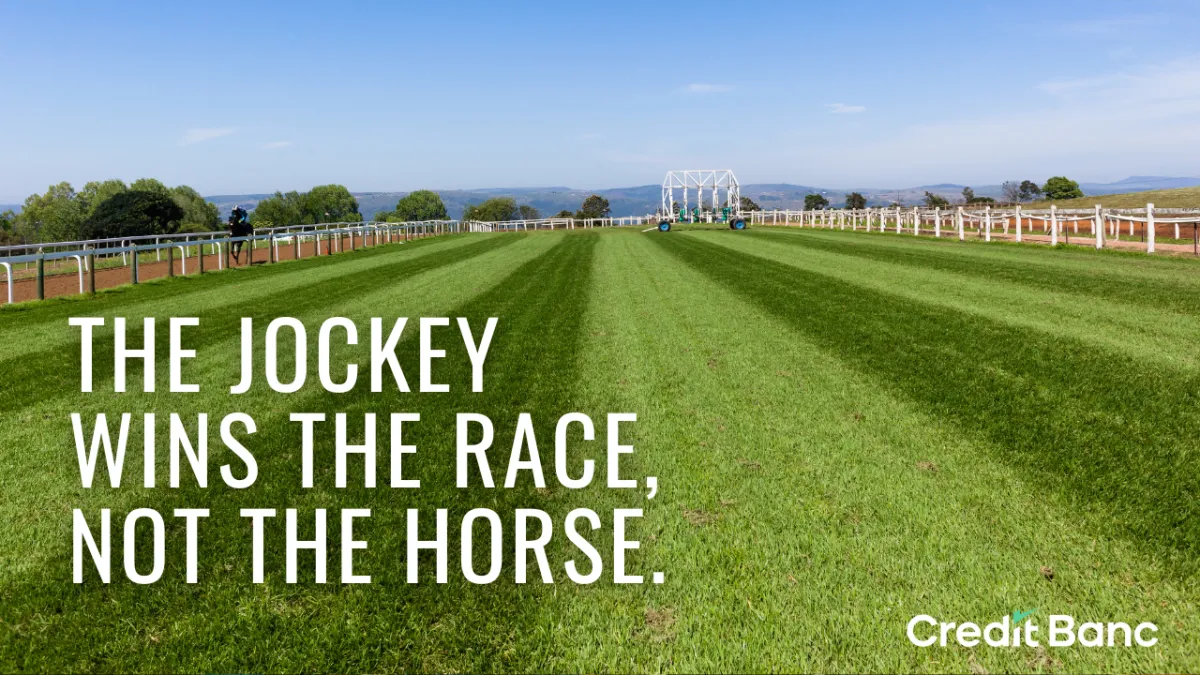
The Jockey Matters More Than the Horse: What Real Estate Teaches Entrepreneurs About Execution
Once upon a time, cheap money made everyone feel like a genius. Real estate investors, business owners, crypto bros… all high on leverage and caffeine.
Now? Rates are up, margins are down, and the hangover’s brutal.
Here’s the reality check: in any market, the “operator” — the person steering the ship — matters more than the product, the economy, or the hype. Or as real estate investor August Biniaz put it on a recent episode of The Liquid Lunch Project:
“The jockey matters more than the horse.”
And he’s right. Whether you’re flipping duplexes or running a design agency, success always comes down to the person in the saddle.
You Are the Risk (and the Reward)
Real estate investors talk about “operator risk.” It’s what separates the smooth talkers from the ones who actually deliver.
Your business is the same. You could have the best product, the sexiest marketing, the sharpest pitch deck…but if you can’t execute, adapt, or lead, you’re toast.
So before you blame the market, your competitors, or Mercury in retrograde… maybe check the mirror.
Communication Builds Confidence (and Cash Flow)
Good operators communicate before people start asking questions.
Great ones do it so consistently that nobody needs to ask.
Biniaz explained that his firm sends investors regular updates, reports, and webinars — not because it’s fun, but because it builds trust.
You don’t need to hold weekly town halls, but if you want your customers, partners, or employees to stick around, keep them in the loop. People freak out when they feel ignored, not when they feel informed.
The Best Operators Build Trust Before They Need It
Good leadership is proactive, not reactive. The best operators earn trust when things are good, so they still have it when things get messy.
If you only show up when you’re putting out fires, you’re not leading — you’re managing chaos with a squirt gun. And that’s just plain messy.
The Deal Isn’t Everything — Execution Is
Everyone’s got a big idea. Most of them die in a Google Doc.
Execution is what separates the dreamers from the earners.
It’s why some founders scale quietly while others spend their weekends updating “coming soon” pages.
Your business plan might be brilliant, but it’s worthless if you can’t operate like one.
Play the Long Game
Short-term thinkers chase dopamine. Long-term operators chase durability.
Anyone can get lucky once (land a viral product, score a big contract, ride a market wave) but that’s not strategy. If you’re serious about winning the long game, here’s what separates the pros from the amateurs:
They build systems, not heroics: The best operators don’t rely on pulling all-nighters or “crushing it” weeks to survive. They build repeatable processes that keep things running even when they take a day off (remember those?).
They make decisions that compound: Every “quick fix” usually costs twice as much to undo later. Long-term thinkers invest in tools, people, and habits that make them more effective six months from now, not just six minutes from now.
They play offense when others panic: When the economy tightens, bad operators freeze. Good ones adapt. Great ones get aggressive — hiring talent, capturing market share, and doubling down while everyone else is licking their wounds.
They measure trust like revenue: Your reputation is part of your balance sheet. The best operators know that consistency, communication, and credibility pay dividends long after the quarterly numbers fade.
Playing the long game isn’t glamorous. It’s not about quick wins or viral success — it’s about resilience, focus, and execution over time.
Final Thought
Whether you’re managing investors or managing a team, remember: the idea doesn’t make you successful - the operator does.
Don’t chase the next shiny horse. Be the damn jockey that wins the race.
🎧 Want to hear the full conversation? Catch August Biniaz on The Liquid Lunch Project as he breaks down how top operators think, build trust, and thrive in volatile markets.